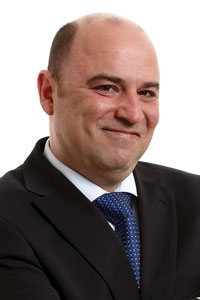
PAID CONTENT
The first half of 2021 was another record-setting period for the Canadian Exchange Traded Fund (ETF) market. Net inflows amounted to $30 billion over the first six months of the year, breaking the inflow record set just last year, according to the BMO ETF Mid-Year Market Review & Outlook.1
Clearly, the ETF industry has lots of momentum and is resonating with institutions, portfolio managers, and advisors, as well as direct investors. ETFs have become important portfolio tools and access vehicles for investors, based on their transparency, efficiency, and ease of use. Topical market and ETF trends discussed in the report include the rise of inflation concerns, the rotation between value and growth, and the recovery in cyclical sectors since the COVID-19 vaccine announcements.
The BMO Global High Dividend Covered Call ETF (ticker: ZWG) integrates ESG screening as part of its investment strategies.
ETF trends
A key area that has captured investor interest in ETFs has been environmental, social, and governance (ESG). As ESG topics dominate headlines, investors have looked to make a difference by aligning their investments with their values, with the added benefit of avoiding ESG laggards.
This has turned the old misconception of sacrificing returns with ESG exposures on its head, as investors can benefit from these ESG exposures. While ESG-branded ETFs are quickly coming to market and have carved out a significant space in the industry, the less-talked-about ESG integration within other active ETF strategies is also becoming more common.
With choice comes the need to evaluate different ETFs. When reviewing ETFs based on ESG metrics, it starts with the exclusions, portfolio construction, and ratings of the ETF, where public ESG metrics are becoming much more readily available. As well, methodologies, commentaries, and tools are readily available on industry websites.2 However, it’s just as important to look at the ETF provider to ensure it focuses on active ownership through company engagement and proxy voting. The team at BMO ETFs stands out from the crowd in terms of willingness to vote against management.3 Through engagement, asset owners can have a dialogue and push companies to improve ESG metrics.
Alongside the rise of ESG, investors have faced other market concerns that have been accelerated by the COVID-19 pandemic, including income scarcity and inflation risks, and capturing portfolio growth.
With the decline in interest rates, sourcing income from bond portfolios has become even more challenging, leading investors to look at the equity side of their portfolios for income. From all the financial stimulus, there are long-term inflation concerns, which can erode future purchasing power. Meanwhile, short-term inflation measures have been twisted by transitory inflation, where the economic slowdown of last year is leading to high year-over-year changes.
Lastly, portfolio growth is always top of mind. Investors want to participate as markets reach new highs, but they understand that portfolios must still deliver growth to reach retirement goals.
ETFs have become important portfolio tools and access vehicles for investors, based on their transparency, efficiency, and ease of use.
Solutions
A popular strategy that helps address these concerns is using enhanced-income or covered-call ETFs. Most covered-call ETFs start with a strong equity dividend base where, unlike bond coupons, dividends tend to rise over time, addressing inflation concerns. Also, in periods of moderate inflation, equities perform well as the economy and company earnings are strengthening.
The call-writing strategy adds an additional source of yield, at the cost of excess returns. This is an appealing trade-off for income-oriented investors. Depending on the strategy, ETFs that have a lighter touch on option writing leave more room to participate in equity growth. Covered-call strategies have long been an innovative way of investing to earn income. Since option overlays are time-consuming and require ongoing resetting, the success of covered-call ETFs is partially because they do not require the same amount of work for the investor.
With the growth of the ETF industry, there are now enhanced income strategies covering broad markets, sectors, and themes, ensuring more choice for investors. BMO ETFs offers a suite of 12 covered-call ETFs, including the BMO Global High Dividend Covered Call ETF (ticker: ZWG), which integrates ESG screening as part of its investment strategies. The ESG screening means investors can feel comfortable knowing that the portfolio is built on companies that compare favourably to their peers on ESG rankings. ZWG invests in higher-quality dividend growers across sectors and countries. The call-writing strategy is based on half of the portfolio, with out-of-the-money and short-dated options to better balance income and growth.
The success and momentum of the ETF industry has had tangible benefits for investors, providing room for innovative ETFs to succeed. The good news is that this gives investors the opportunity to build better portfolios.
Alain Desbiens
Director of ETFs,
BMO Global Asset
Management Canada
Mark Raes
Head of Product,
BMO Global Asset
Management Canada
¹ BMO ETF Mid-Year Market Review & Outlook
³ UN PRI Transparency Report 2020
Commissions, management fees and expenses all may be associated with investments in exchange traded funds. Please read the ETF Facts or prospectus of the BMO ETFs before investing. Exchange traded funds are not guaranteed, their values change frequently and past performance may not be repeated. For a summary of the risks of an investment in the BMO ETFs, please see the specific risks set out in the BMO ETF’s prospectus. BMO ETFs trade like stocks, fluctuate in market value and may trade at a discount to their net asset value, which may increase the risk of loss. Distributions are not guaranteed and are subject to change and/or elimination. BMO ETFs are managed by BMO Asset Management Inc., which is an investment fund manager and a portfolio manager, and a separate legal entity from Bank of Montreal.
®/™Registered trademarks/trademark of Bank of Montreal, used under licence.


